#documenta 15
Explore tagged Tumblr posts
Text
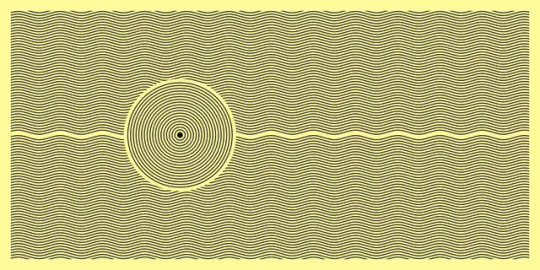
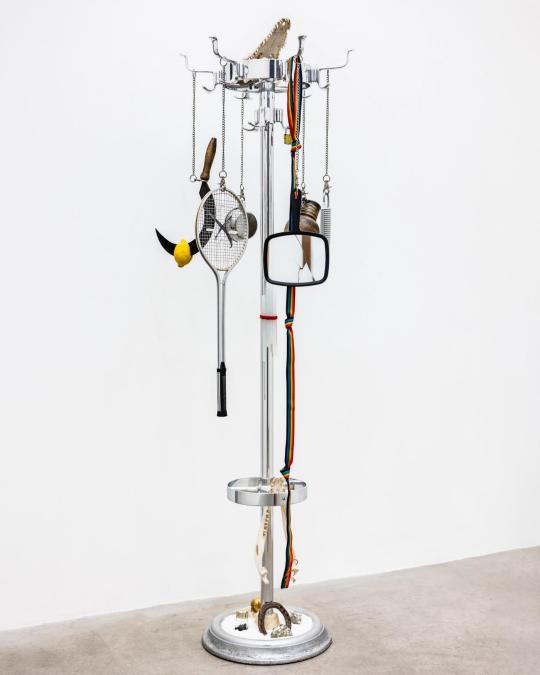
Something's in the air, or maybe it's just LA, but I've been getting wafts of incense from the art lately. Conceptual perfume artist Chris Rusak published a zine survey of liturgical incense, including some made by artisanal monks. Meanwhile, in New York, artist/mage L is showing an altar made from a vestment rack from an anarchist priest, which includes a custom collab incense made with Maison Anonyme. It was last seen/sensed at Documenta 15.
#incense#los angeles#documenta 15#zine#artisanal monks#artist mage#was everyone but me in documenta 15 and how would we know?#chris rusak#conceptual perfume artist#L
6 notes
·
View notes
Text
A Touch from the Abyss
“To forget would not only be dangerous but offensive; to forget the dead would be akin to killing them a second time.”— Elie Wiesel, preface to ‘Night’ (2006)
As if free-falling, the body plunged into darkness. Humid air dampened the skin, cooled the ground, and diffused an earthy scent. The wind’s symphonies sounded celestial from a distance, enchanting the listener into nocturnal woods. This ambience was characterised by “âm”, the form and expression of ‘And They Die a Natural Death’ (2022) by artist and filmmaker Nguyễn Trinh Thi. A homophone in the Vietnamese language, âm has different usages, some of which provide clues to understanding humanist concerns in this work.
In the Vietnamese language, the syllable âm denotes distinct meanings. As a Vietnamese observer, I realised an existing language barrier—artistically and linguistically—that poses a challenge in contextualising ‘And They Die a Natural Death’. By introducing the word âm, I attempt to illuminate foundational layers of Nguyễn Trinh Thi’s presence at documenta fifteen, which is arguably one of the most prominent global exhibitions.
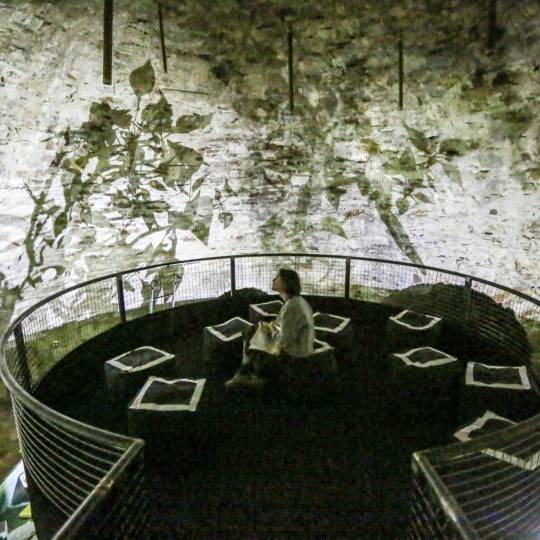
Nguyễn Trinh Thi, ‘And They Die a Natural Death’, 2022, chilli pepper plants, wind, bamboo flutes, projection, monitor. Installation view, Rondell, Kassel. Image courtesy of the artist.
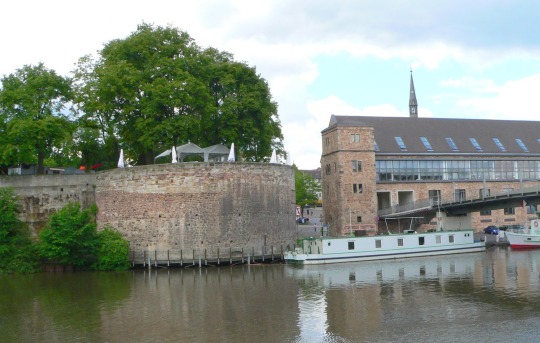
Rondell (circular building on the left), exterior view, Kassel, 2006. Photo by Eva Kröcher. Wikimedia Commons.
Âm 音: sonic, sound
A site-specific art installation, ‘And They Die a Natural Death’ was a public intervention reviving Rondell—Kassel’s long-standing defensive tower built in 1523 and was said to later house torture facilities in its underground vaults. As part of the installation, a high-tech system recreated and implanted the natural environment of Tam Đảo forest in Vietnam. Via this hidden automated design, the Tam Đảo wind was generated in Rondell’s interior, and composed rhythms with the bamboo flutes in the dome. In this absolutely dark cinematic space, sound became the main device to storytelling.
Recently, Nguyễn Trinh Thi began to incorporate new media in her work, including organic materials and natural forces, prioritising the art of listening over mere representation. She experimented with sound as the primary technical apparatus. An ethnographic research trip to the Central Highlands of Vietnam in 2021 touched the artist so significantly that she dedicated her film to the J’rai culture of listening.2 ‘How to Improve the World’ (2021) is the documentary film that acts as a prelude to ‘And They Die a Natural Death’. By appropriating musician John Cage’s diary titled ‘How to Improve the World: You Will Only Make Matters Worse’ (1992), the filmmaker suggests that we should listen to the world around us to survive ecological crises together.3
Âm 荫: tree shade
The Tam Đảo wind not only created sounds inside Rondell, but also activated a lighting system to blow up silhouettes of bird’s eye chilli plants hidden underneath the platform. Enlarged shadows reached the highest parts of the dome, casting a luxuriant forest onto Rondell’s circular wall. Using small plants as main actors, the artist built an eco-theater in which non-human agency played a crucial role in the retelling of death. Chilli pepper shadows inside Rondell formed a panoramic ink painting, and this visual quality could be said to reference East Asian traditional art. In feudal China, the landscape genre seeks to express harmony between Heaven and Earth and cosmic wholeness between humans and nature, and this is observed with the installation.
Nguyễn Trinh Thi’s use of shadow as a visual signifier is not unlike American American artist Kara Walker’s signature strategy, which elicits the legacy of slavery through stereotypical--often grotesque--cut-paper silhouettes. Such technique aids the artists to walk the lines between pleasure and pain, visibility and invisibility, power and oppression.
Preparation of chilli pepper plants before being installed underneath the viewer's platform in the Rondell. Original caption: “She took care of everything - production, plants, people, and text. I’m deeply grateful.” Image courtesy of the artist.
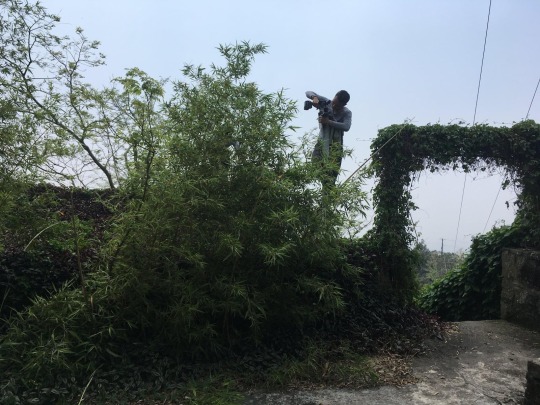
The electrical system which measured the wind’s intensity was being set up in Tam Đảo, Vietnam. Originally captioned “Thank you so much Đức for sending us your wind!!!” Image courtesy of the artist.
Âm 喑: muteness
Like the other projects at documenta fifteen, Nguyễn Trinh Thi’s installation recalled a testimony denied by grand history. ‘And They Die a Natural Death’ was a mute cry for loss and brutality. The artist referenced a chapter in Bùi Ngọc Tấn’s memoir in prison, A Tale For 2000.4 In the labour camp, male prisoners longed for the spicy heat of chilli pepper. One day, the discovery of a vast pepper tree forest caused an uprising in the camp. Unable to control the mob, furious guards fired in the air and ended up shooting a prisoner. The mob went silent and returned to the camp; their hands still held on to the chilli peppers as if it represented fleeting freedom.
As a site-specific project, ‘And They Die a Natural Death’ connected to local history in Kassel. In the Nazi era, the city witnessed book burning, destruction of Jewish synagogue, concentration camps, and Adolf Hitler’s speech in the first Reich Warriors’ Convention. Within this context, the installation can be interpreted as a passive mourning. Its dim lights and eerie sounds gestured towards, in the words of philosopher Jacques Ranciere, “the representation of the inhuman.”5 This rhetorical device employs micro-description of actions, which highlights the absence of humanity experienced in prisoner camps from Bùi Ngọc Tấn’s memoir and Kassel’s Nazi past.
Âm 陰: the underworld
Nguyễn Trinh Thi is neither the first nor the only artist to adapt a ruin’s history in a retelling of memory. However, her philosophy, deeply rooted in Taoism, fostered aesthetic qualities that were peculiar to East Asian and Vietnamese worldviews. In 1987, German artist Rebecca Horn also addressed history by staging a site-specific installation ‘Concert in Reverse’ in a Munster fortification, which was built around the same time as Rondell. While both artists intrigued their audiences with cinematic experiences and sounds from ordinary tools, for Nguyễn Trinh Thi, darkness was crucial to the mise-en-scène of death. Such an artistic strategy inserted the Vietnamese spiritual belief that the dead are not far gone, and that their souls stay in the underworld. With its 10-metre-thick wall, humid air, and absolute absence of light, Rondell became a vessel, displacing viewers to enter a space outside of time. The haunting yet meditative ambience enchanted listeners to feel a tender touch from the abyss.
A story about death is a reminder that nature’s flow waits for no one. However, by narrating death, both storyteller and listener resist this flow and encounter the deceased in a parallel reality. This temporal convergence offers a space for grief, and in some cases, the telling of death helps to make sense of loss.
At documenta fifteen, Nguyễn Trinh Thi presented her ongoing investigation of anti-representation, nonhuman agency, and power. She conceived of “landscapes as quiet witnesses to history.”7 ‘And They Die a Natural Death’ was a live theatre in which nonhuman actors--wind and chilli pepper plants--took centre stage. In this nonverbal retelling of death, artistic strategies were utilised to engage the viewer’s multiple senses. By imagining a gate to the underworld, the artist staged a landscape that connected Kassel and the Tam Đảo forest where the prisoner died a natural death.
1 note
·
View note
Text
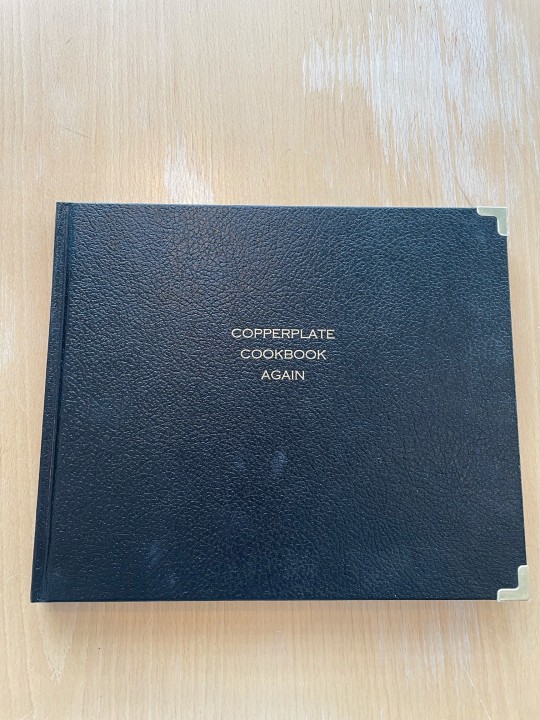
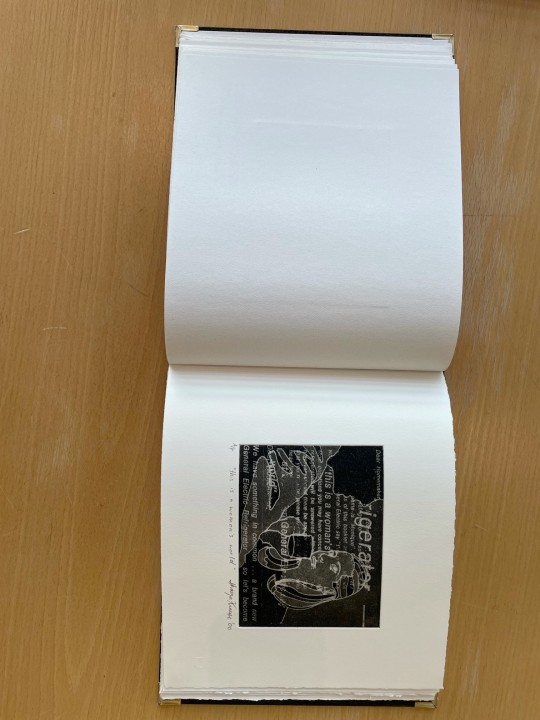
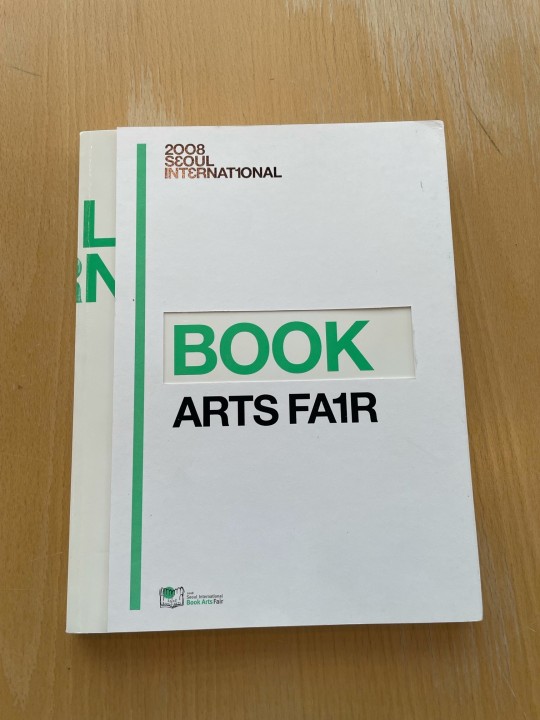
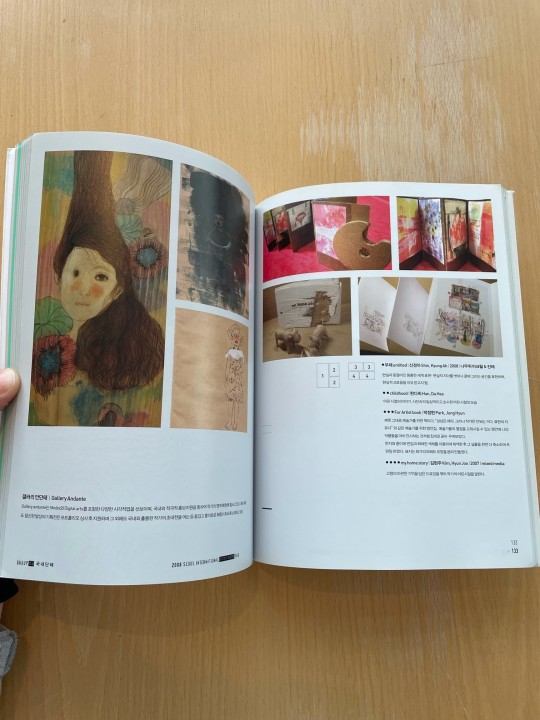
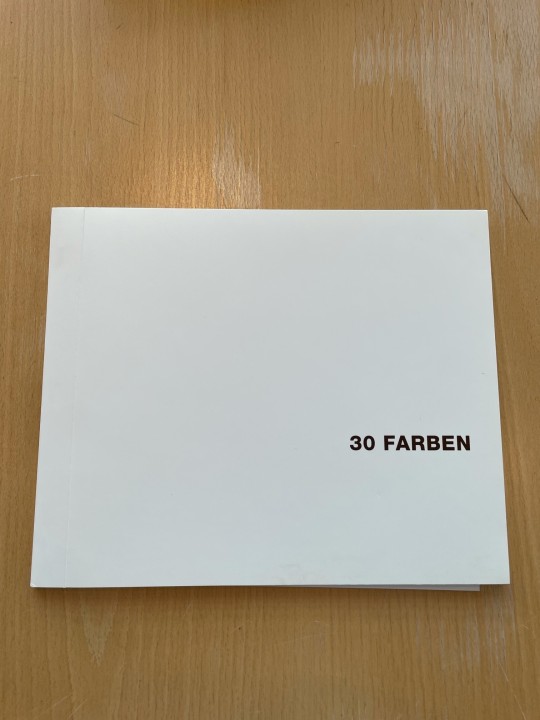
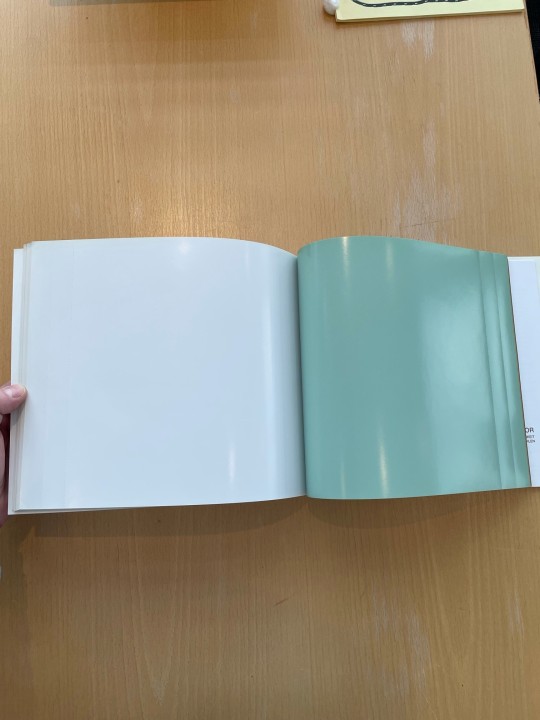
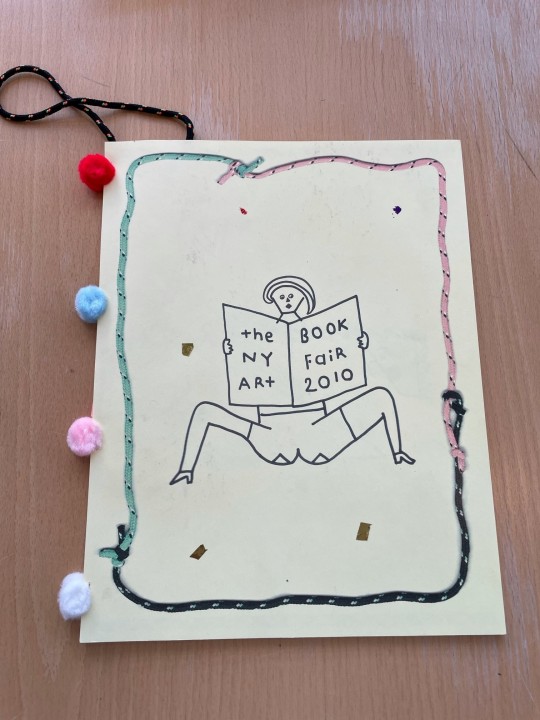
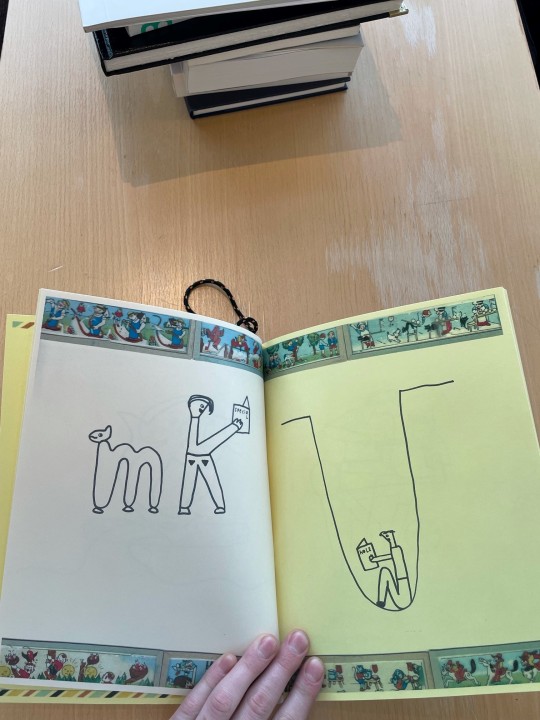
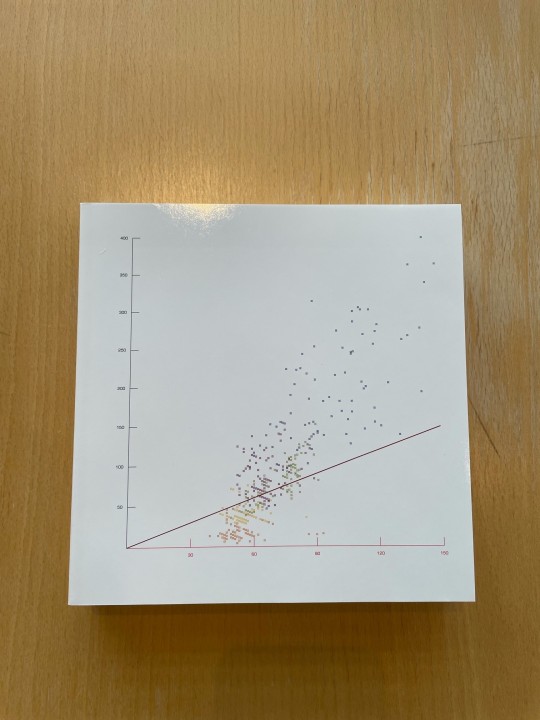
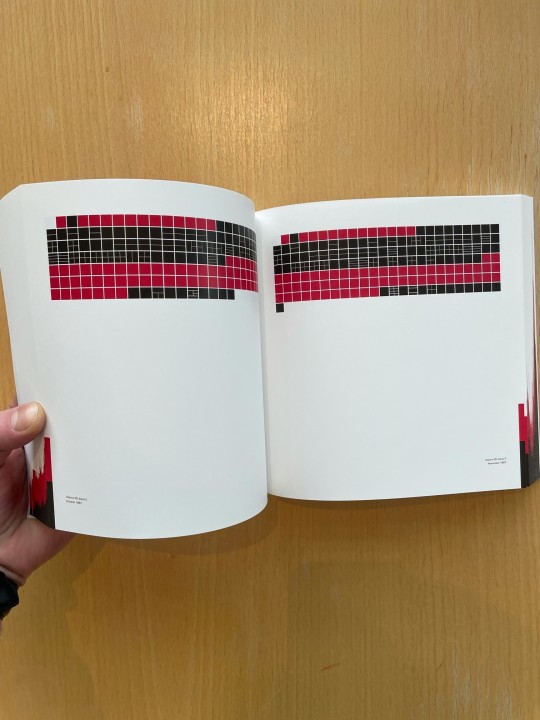
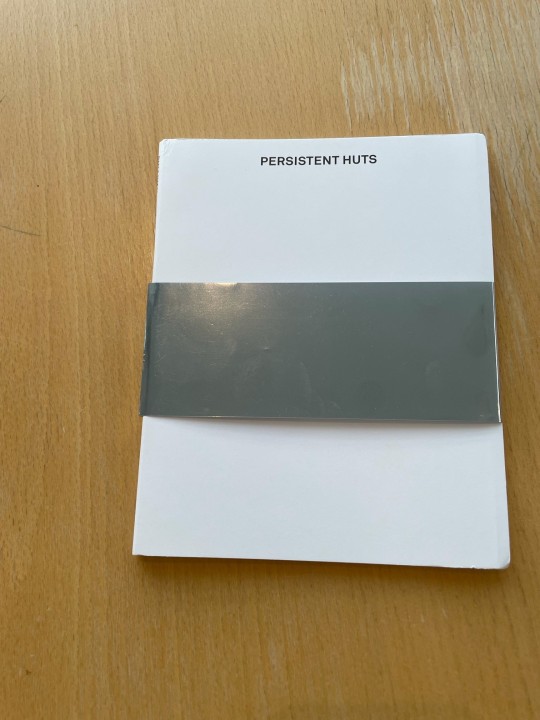
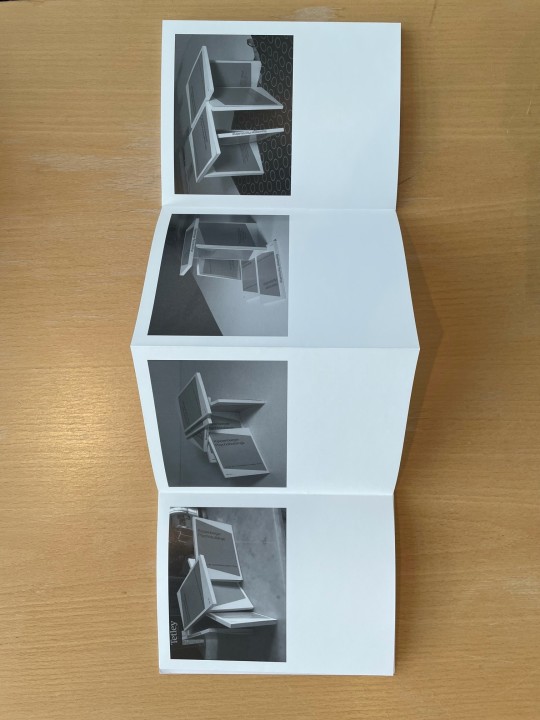
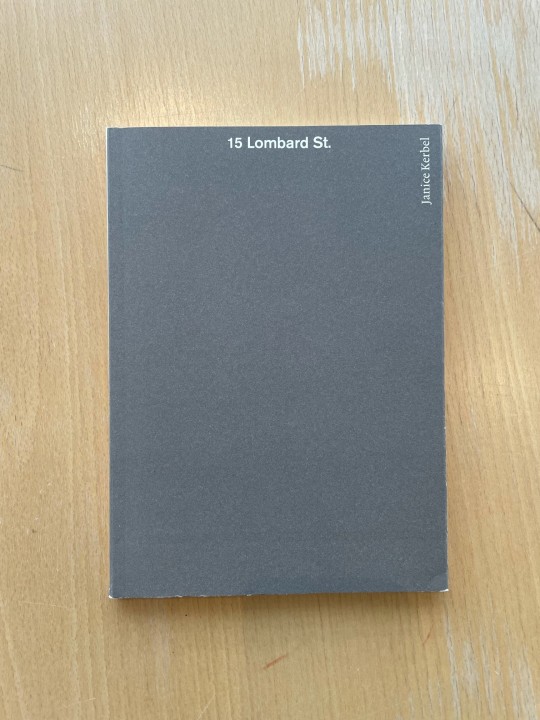
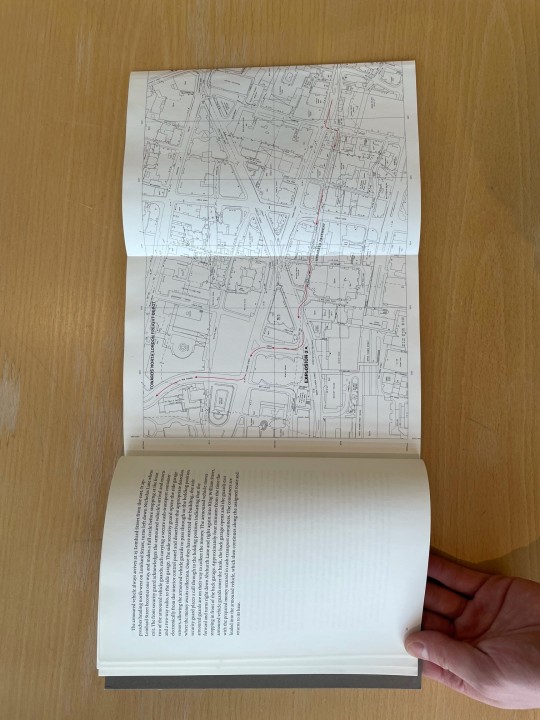
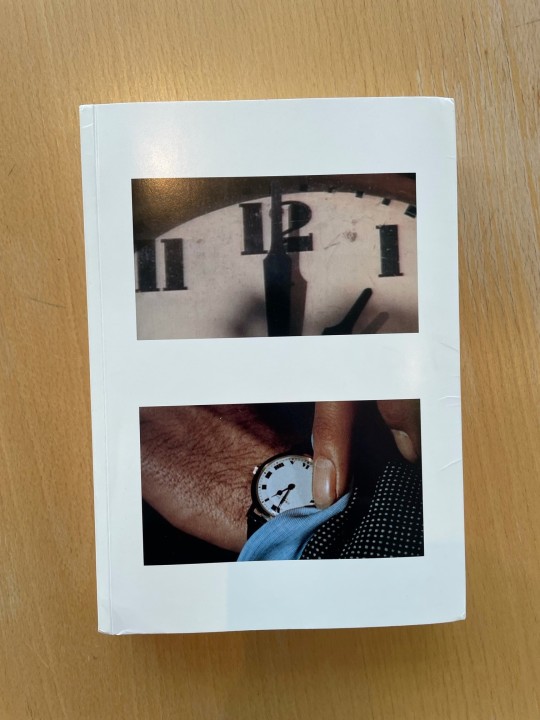
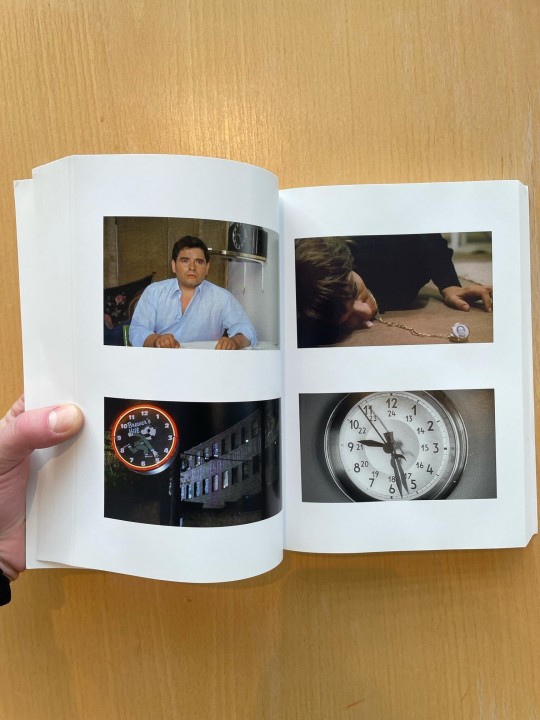
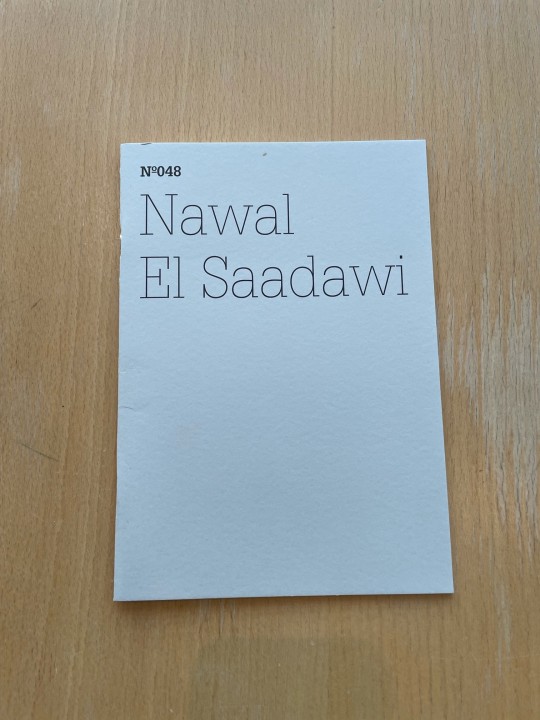
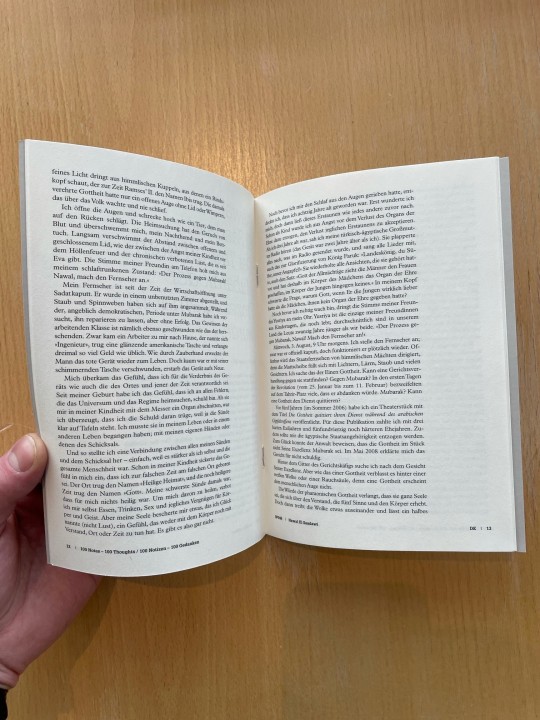
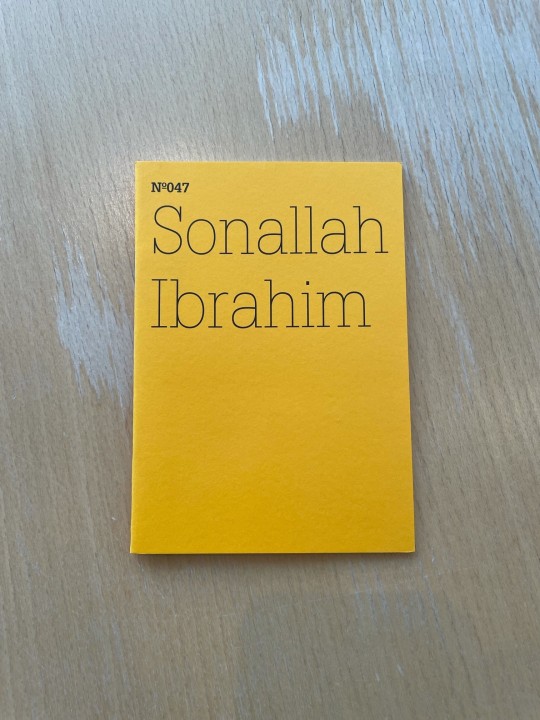
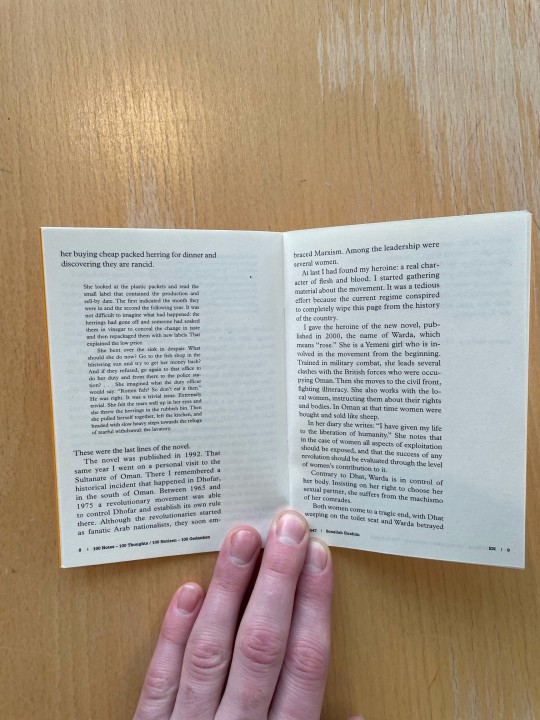
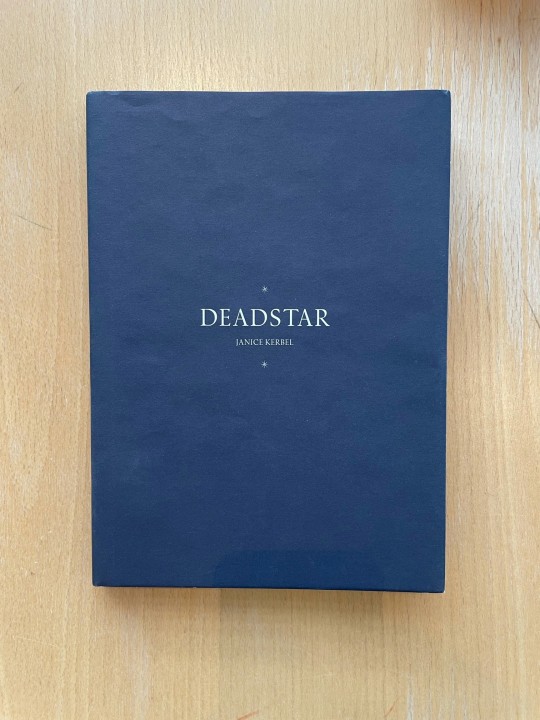
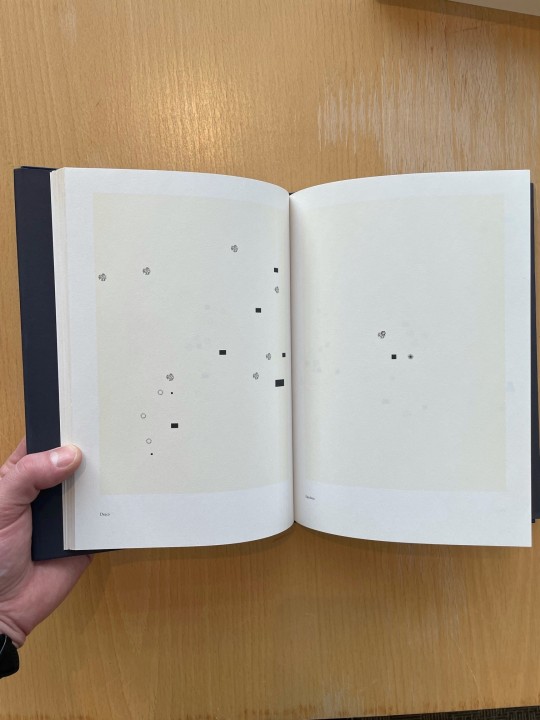
ARTIST BOOK DISPLAY JANUARY 2023
Copperplate cookbook again : a portfolio by Year 2000 undergraduate printmakers. Nicole Brabant. [Regina, SK] : University of Regina, Faculty of Fine Arts, Dept. of Visual Arts, 2000.
2008 Seoul International Book Arts Fair. Seoul International Book Arts Fair, Sŏng-jae Song. [Seoul, Korea] : Artistbookseoul, 2008.
Language of Color. Olaf Nicolai, Annelie, Pohlen, Bonner Kunstverein. [Bonn] : Bonner Kunstverein, 2000.
Printed Matter Special : 2010 NY Art Book Fair edition. Misaki Kawai, Printed Matter Inc., NY Art Book Fair. [New York, N.Y.] : Printed Matter, Inc, 2010.
Artforumx : summary. Parasitic Ventures Press. [Toronto] : Parasitic Ventures Press. 2010.
Persistent Huts. Derek Sullivan. [New York, N.Y.] : Printed Matter, Inc, 2008.
15 Lombard St. Janice Kerbel, Stefan. Kalmár, Book Works. [London] : Book Works, 2000.
Christian Marclay: The Clock. Christian Marclay, Honey Luard, Darian Leader, White Cube. [London] : White Cube, 2010.
The Day Mubarak was Tried. Nawāl Saʻdāwī, Documenta. [Ostfildern] : Hatje Cantz, 2011.
Two Novels and Two Women. Ṣunʻ Allāh Ibrāhīm, Documenta. [Ostfildern] : Hatje Cantz, 2011.
Deadstar : A Ghost Town. Janice Kerbel, Mark Godfrey, Lyall Watson, Susan Morgan. [Newcastle upon Tyne] : Locus+ Publishing, 2006.
17 notes
·
View notes
Text
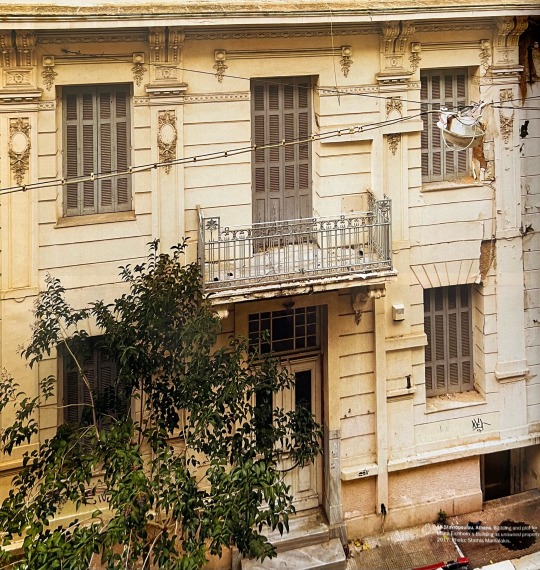
Maria Eichhorn, 15 Stavropoulou, Athens, building and plot for Building as unowned property, 2017, Documenta 14
7 notes
·
View notes
Text
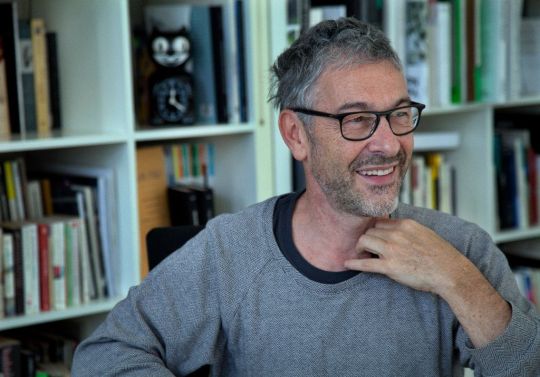
“I’m more interested in looking for something transitory than in producing a conclusion.”
Pierre Huyghe
“I’m interested in contingency,” the French artist Pierre Huyghe has said. “Of what is not predictable. Of what is unknown. I think that has somehow been a core of my work.”1 Pursuing interests in contingency and unpredictability, Huyghe creates art forms that incorporate living organisms, such as dogs, turtles, spiders, peacocks, ants, and bees. Over the course of an exhibition, his living works of art grow, decay, and die. Huyghe said, “They are not made for us. They are not made to be looked at. They exist in themselves.”2
Throughout his career, Huyghe has experimented with many mediums and technologies, including film, sculpture, photography, music, and living ecosystems. At the outset of his career, Huyghe collaborated with artists whose work explored human relations and their social context; to describe their interests, the curator and art critic Nicolas Bourriaud coined the term Relational Aesthetics. In the late 1990s and early 2000s, Huyghe’s works often reenacted notable artworks or popular footage from mass media. In Silence Score (English Version), a musical notation of John Cage’s pivotal composition 4'33", he created a readable score for the silent piece using a computer algorithm.
In 1997, with artists Charles de Meaux, Philippe Parreno, and Dominique Gonzalez-Foerster and curators Xavier Douroux and Franck Gautherot, Huyghe cofounded a film production company called Anna Sanders Films. They named the company after a fictional character first developed in a magazine released in 1997. Blanche-Neige Lucie, the company’s first film, stars Lucie Doléne, the voice actor who dubbed the Disney character Snow White in French, and who won a lawsuit against the Walt Disney Corporation for the rights to the reproduction of her voice. The film features Doléne humming the melody of “Someday My Prince Will Come” in an empty film studio, facing the camera, while her story is told through the subtitles. The work explores how a voice can be used to create a character, and who then owns that product.
The Host and The Cloud fuses scripted action and improvised narratives generated by the actors. The yearlong project records theatrical events that took place in an abandoned museum in Paris on three holidays: the Day of the Dead, Valentine’s Day, and May Day. In a variety of fictional settings, 15 actors clad in LED masks perform alongside puppets and animation. These spontaneous elements reflect Huyghe’s interest in contingency and adding dynamic layers to his storylines.
Originally created for Documenta 13 in 2012, Huyghe’s Untilled (Liegender Frauenakt) is a reclining female nude whose head is covered by a live beehive. The work was part of an entire ecological system the artist created in a composting area in Karlsaue Park in Kassel, Germany. In a video Huyghe filmed during the exhibition, his camera captured a wide range of beings at different scales, including minute species that are barely visible to the naked eye. Huyghe aims to “intensify the presence of things, to find its own particular presentation, its own appearance and its own life, rather than subjecting it to pre-established models.”3 With interest in “the transitory state, in the in-between,” his complex worlds blur the boundaries between the natural and the artificial, the physical and the virtual, and the real and the fictional.4 In 2015 and again in 2023, the statue found itself in MoMA’s Sculpture Garden, placed in a new context and in conversation with other works of art. During the summer, the bees travel in and out of the garden to pollinate and build their hive.
Huyghe’s artistic practice reflects his belief that life is in constant flux, and that all beings exist beyond the perceivable realm of human senses and knowledge. By engaging with unconventional materials and technologies, he provides us with a way to see, feel, and experience the wild, untilled world we are living in.
Source: MoMA / Pic: YBCA
9 notes
·
View notes
Text
Wenn die IDF Kulturkritik betreibt, bleibt nichts übrig vom antisemitischen Kunstwerk der Documenta 15
2 notes
·
View notes
Text
Las inundaciones son fenómenos naturales impredecibles que pueden convertirse en emergencias en minutos. Saber cómo actuar antes, durante y después es clave para reducir riesgos. Aquí presentamos un decálogo esencial para enfrentarlas con responsabilidad Comparte esta información y contribuye a crear comunidades más resilientes. ¡La prevención salva vidas! 🌍💙 Imagen: trilemedia Infórmate y prepara un plan de emergencia Identifica si vives en una zona de riesgo y diseña un plan familiar que incluya rutas de evacuación, puntos de encuentro y contactos de emergencia. Prepara un kit de emergencia Incluye agua potable, alimentos no perecederos, medicamentos, linterna, radio a pilas, documentos importantes, ropa abrigada y un botiquín básico. Protege tu hogar Eleva objetos de valor y electrodomésticos a zonas altas, asegura puertas y ventanas, y limpia desagües para evitar obstrucciones. Evita cruzar o caminar por aguas inundadas No transites a pie, en vehículo o en moto por calles inundadas (¡15 cm de agua pueden arrastrarte!). Aléjate de cables caídos y estructuras dañadas. Mantente informado mediante fuentes oficiales Escucha alertas de autoridades meteorológicas o Protección Civil a través de radio, TV o apps confiables. No difundas rumores. Evacúa de inmediato si las autoridades lo indican Sigue las rutas designadas, lleva tu kit de emergencia y ayuda a personas vulnerables (niños, ancianos, personas con discapacidad). No regreses a tu hogar hasta que sea seguro Espera la autorización oficial para volver. Al retornar, inspecciona daños estructurales, corta suministros eléctricos y evita contacto con agua estancada. Cuida tu salud post-inundación No consumas agua ni alimentos contaminados. Usa equipo de protección (guantes, botas) para limpiar escombros y desinfecta espacios afectados. Documenta los daños Toma fotos o videos de los perjuicios para gestionar seguros o solicitar ayuda gubernamental. Fomenta la solidaridad comunitaria Apoya a vecinos afectados, colabora con brigadas de rescate y participa en la reconstrucción responsable de tu comunidad. Estructurada detallada del Decálogo de Actuación ante una Inundación 1. Prevención y planificación ✅ Conoce tu zona: Identifica si vives en un área propensa a inundaciones. ✅ Crea un plan familiar: Define rutas de evacuación, puntos seguros de reunión y contactos de emergencia. 2. Kit de supervivencia 🧳 Incluye: Agua potable (3 litros por persona). Alimentos no perecederos y medicamentos. Linterna, radio a pilas, documentos importantes y dinero en efectivo. 3. Protege tu hogar 🏠 Acciones clave: Eleva muebles y electrodomésticos. Sella puertas y ventanas con materiales impermeables. Retira obstáculos de desagües y alcantarillas. 4. Evita riesgos durante la inundación 🚫 No cruces agua en movimiento: 15 cm pueden derribar a una persona; 60 cm arrastran un auto. ⚠️ Aléjate de cables caídos y estructuras dañadas. 5. Información confiable 📻 Sigue fuentes oficiales: Radio, TV o aplicaciones de Protección Civil. Evita difundir rumores. 6. Evacuación ordenada 🚨 Si las autoridades lo indican: Usa las rutas designadas. Ayuda a niños, adultos mayores y personas con discapacidad. 7. Retorno seguro 🔌 Al regresar: Verifica daños en paredes o cables. No uses energía eléctrica hasta asegurar que no hay fugas. 8. Salud post-inundación 🧼 Previene enfermedades: Desinfecta superficies y evita contacto con agua estancada. Usa guantes y botas durante la limpieza. 9. Documenta los daños 📸 Registra fotos/videos: Esencial para seguros o solicitar ayuda gubernamental. 10. Comunidad unida 🤝 Solidaridad: Colabora con vecinos y autoridades en la recuperación. Juntos somos más fuertes. #PrevenciónEsVida #Inundaciones #ProtecciónCivil Fuente: Recomendaciones de organismos internacionales de gestión de emergencias. Importante: La prevención salva vidas. Actuar con calma y seguir instrucciones oficiales es clave para minimizar riesgos. 🌧️🚨
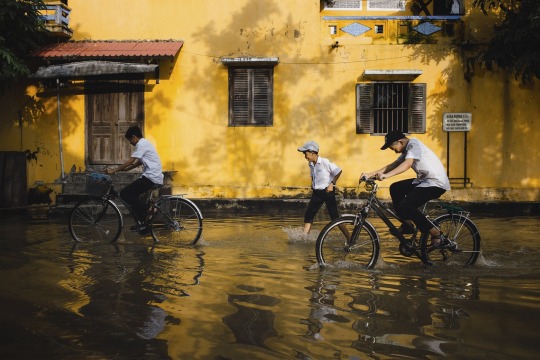
View On WordPress
0 notes
Text
0 notes
Text
¿Cómo se Calcula la Pensión Alimentaria en Costa Rica?
La pensión alimentaria es un tema que genera muchas dudas, especialmente en procesos de divorcio o cuando hay hijos de por medio. ¿Cuánto se debe pagar? ¿Cómo se calcula? ¿Qué factores influyen? Aquí te explicamos todo de manera clara y actualizada.
1. ¿Qué es la Pensión Alimentaria?
La pensión alimentaria es una obligación legal que garantiza el bienestar de los hijos menores de edad o de personas dependientes, como cónyuges en ciertas condiciones o familiares con discapacidad.
En Costa Rica, este derecho está regulado por el Código de Familia y es supervisado por los Juzgados de Pensiones Alimentarias.
2. Factores que se Toman en Cuenta para Calcular la Pensión
El cálculo de la pensión alimentaria no es una simple fórmula matemática. Los jueces analizan diversos aspectos para determinar un monto justo, como:
a) Ingresos del Obligado Alimentario
• Sueldo neto o ingresos mensuales.
• Si tiene trabajo fijo, independiente o ingresos variables.
• Bonificaciones, aguinaldo y otros beneficios laborales.
b) Necesidades del Beneficiario
• Alimentación, vivienda, educación, salud y recreación.
• Gastos médicos especiales (si aplica).
• En el caso de hijos menores, se busca que su calidad de vida no se vea afectada.
c) Capacidad de Pago
• Se evalúa si el obligado alimentario tiene otras cargas económicas (como más hijos o deudas importantes).
• Se busca un equilibrio para que la persona pueda cumplir con la obligación sin comprometer su sustento básico.
d) Estándar de Vida Antes de la Separación
• Si el menor estaba acostumbrado a cierto nivel de vida, el juez intentará que ese nivel no se reduzca drásticamente.
3. ¿Existe un Porcentaje Fijo?
No hay una tabla oficial con un porcentaje fijo, pero en la práctica los jueces suelen aplicar una referencia del 50% de los ingresos netos del obligado alimentario cuando se trata de un solo hijo.
Si hay más hijos o dependientes, el porcentaje se ajusta según las circunstancias. En casos de ingresos muy bajos, el mínimo suele rondar el 15% del salario base del Poder Judicial.
4. ¿Cómo se Solicita la Pensión Alimentaria?
Si necesitas solicitar una pensión, estos son los pasos básicos:
1. Presentar una demanda en el Juzgado de Pensiones Alimentarias de tu localidad.
2. Incluir pruebas de los ingresos del demandado y de las necesidades del beneficiario.
3. Asistir a la audiencia de conciliación, donde se intentará llegar a un acuerdo.
4. Si no hay acuerdo, el juez fijará el monto con base en la información disponible.
5. ¿Qué Pasa si No se Paga la Pensión?
El incumplimiento de la pensión alimentaria tiene consecuencias serias en Costa Rica:
• Retención de salario o embargo de bienes.
• Prohibición de salida del país.
• Inclusión en la lista de deudores del OIJ, lo que puede afectar trámites bancarios y migratorios.
• Posible cárcel, si la deuda se acumula y no hay voluntad de pago.
6. ¿Se Puede Modificar la Pensión?
Sí. Si las condiciones económicas cambian (por ejemplo, pérdida de empleo o aumento en las necesidades del hijo), cualquiera de las partes puede solicitar una modificación de la pensión ante el juzgado.
7. Consejos Claves
✅ Siempre documenta tus ingresos y gastos si eres el obligado alimentario.
✅ No ignores una demanda, porque el juez puede fijar un monto sin tu presencia.
✅ Si recibes la pensión, usa los fondos para el bienestar del menor.
✅ Si la situación económica cambia, solicita una revisión lo antes posible.
El cálculo de la pensión alimentaria se basa en la capacidad económica del obligado y las necesidades del beneficiario. No hay una cifra única, pero se busca un equilibrio justo.
Si estás en un proceso de pensión alimentaria, lo mejor es asesorarte con un abogado especializado para asegurarte de que el monto sea adecuado y justo para ambas partes.
🌐 https://www.sap.cr/especialistas-familia/

#servicios legales#divorciosaplegal#abogados de familia costa rica#bufete de abogados#pensión#pensión alimentaria
1 note
·
View note
Text
0 notes
Text
Veranstaltungen Nordhessen 2025: Bei welchen Events sollten Sie dabei sein?

Nordhessen, eine Region voller kultureller Vielfalt und landschaftlicher Schönheit, zieht jedes Jahr zahlreiche Besucher mit einem abwechslungsreichen Veranstaltungsprogramm an. Auch im Jahr 2025 können sich Bewohner und Touristen auf eine Vielzahl von Veranstaltungen in Nordhessen freuen, die sowohl Tradition als auch Innovation verbinden. Ob Musik, Kunst, Kulinarik oder historische Märkte – für jeden Geschmack ist etwas dabei. In diesem Artikel stellen wir die spannendsten Events vor, geben praktische Tipps zur Planung und zeigen, warum Nordhessen eine der interessantesten Regionen Deutschlands ist.
Kasseler Musikfestspiele: Klassik trifft Moderne
Die Kasseler Musikfestspiele sind eines der kulturellen Highlights in Nordhessen und locken jährlich Musikliebhaber aus der ganzen Welt an. Vom 10. bis 20. Mai 2025 verwandeln sich die schönsten Locations Kassels, darunter das Staatstheater und die Orangerie, in Bühnen für hochkarätige Aufführungen. Das Festival kombiniert klassische Meisterwerke mit zeitgenössischen Kompositionen und bietet eine Plattform für renommierte Künstler sowie aufstrebende Talente. Ein besonderer Schwerpunkt liegt 2025 auf der Verbindung von Musik und visueller Kunst, wodurch die Aufführungen zu multisensorischen Erlebnissen werden. Für Besucher, die einen tieferen Einblick erhalten möchten, gibt es begleitende Workshops und Vorträge. Tickets für die begehrtesten Konzerte sollten frühzeitig über die offizielle Website kassel.de gebucht werden.
Heimat- und Weinfest in Fritzlar: Genuss und Tradition
Im Juli 2025 feiert Fritzlar, eine der ältesten Städte Nordhessens, das traditionelle Heimat- und Weinfest. Dieses Event verbindet regionale Weinkultur mit historischem Flair und bietet Besuchern die Möglichkeit, Nordhessens kulinarische Vielfalt zu entdecken. Im malerischen Altstadtkern präsentieren lokale Winzer ihre besten Tropfen, während regionale Spezialitäten wie Ahle Wurst und Handkäse die Geschmacksknospen verwöhnen. Neben den kulinarischen Höhepunkten bietet das Fest ein abwechslungsreiches Programm aus Livemusik, Volkstanz und einer historischen Stadtführung. Besonders sehenswert ist der Festumzug, bei dem die Geschichte der Region durch aufwendige Kostüme und Darstellungen lebendig wird. Ein Besuch lohnt sich besonders am Abend, wenn die Altstadt in stimmungsvolles Licht getaucht wird und die Weinstände zu geselligen Stunden einladen.
Highlights Veranstaltungen Nordhessen 2025
Die Region Nordhessen bietet 2025 zahlreiche weitere spannende Veranstaltungen, die Sie nicht verpassen sollten: Kunsthandwerkermarkt in Bad Arolsen (voraussichtlich 15. bis 17. Juni): Über 150 Aussteller präsentieren handgefertigte Unikate, von Keramik bis Schmuck. Grimmsteig-Wandermarathon (voraussichtlich 13. September): Ein sportliches Highlight für Naturfreunde, das durch die schönsten Landschaften der Region führt. Documenta-Stadtrundgänge in Kassel (voraussichtlich April bis Oktober): Erleben Sie die Kunstgeschichte der Stadt mit fachkundiger Führung. Hessentag in Eschwege (voraussichtlich 31. Mai bis 9. Juni): Das größte Landesfest Hessens mit Konzerten, traditionellen Märkten und Ausstellungen. Adventsmarkt in Hann. Münden (voraussichtlich 1. bis 24. Dezember): Eine märchenhafte Weihnachtskulisse mit regionalen Köstlichkeiten und Kunsthandwerk. Jede dieser Veranstaltungen bietet ein individuelles Erlebnis und zeigt die Vielseitigkeit der nordhessischen Region.
Nordhessische Spezialitäten genießen
Ein Besuch bei den Veranstaltungen in Nordhessen ist nicht vollständig ohne die kulinarischen Highlights der Region zu kosten. Neben traditionellen Speisen wie der berühmten Ahlen Wurst und den Kartoffelspezialitäten „Hessische Salzekuchen“ laden viele Events dazu ein, regionale Weine und Biere zu probieren. Besonders empfehlenswert ist die Teilnahme an geführten Verkostungen, die häufig bei Festen wie dem Heimat- und Weinfest in Fritzlar oder dem Kunsthandwerkermarkt in Bad Arolsen angeboten werden. Lokale Produzenten legen großen Wert auf Qualität und Nachhaltigkeit, was die Speisen und Getränke zu einem echten Genuss macht. Viele Produkte können direkt vor Ort gekauft werden, sodass Sie ein Stück Nordhessen mit nach Hause nehmen können.
Sportliche Veranstaltungen Nordhessen 2025
Der Burgwald Triathlon ist eines der sportlichen Highlights des Jahres in Nordhessen. Die Veranstaltung führt durch die malerische Landschaft des Burgwalds, einer der größten zusammenhängenden Waldgebiete der Region, und bietet eine perfekte Kombination aus sportlicher Herausforderung und Naturerlebnis. Der Triathlon umfasst drei Disziplinen: Schwimmen, Radfahren und Laufen. Die Schwimmstrecke führt durch den klaren See in Bracht, während die Radstrecke sich durch die sanften Hügel des Burgwalds schlängelt. Abschließend führt die Laufstrecke entlang idyllischer Waldwege, die den Teilnehmern sowohl sportliche Abwechslung als auch beeindruckende Ausblicke bieten. Für Anfänger gibt es eine Sprintdistanz, während erfahrene Athleten sich auf der olympischen Distanz messen können. Besucher können die Sportler an mehreren Zuschauerpunkten anfeuern, die ideal platziert sind, um das Rennen hautnah mitzuerleben. Besonders Familien profitieren von einem Rahmenprogramm mit Kinderläufen, Verpflegungsständen und regionalen Spezialitäten. Weitere Informationen zur Anmeldung und den Strecken finden Sie auf der offiziellen Seite burgwald-triathlon.de. Der Burgwald Triathlon ist ein Event, das Sportbegeisterte und Naturliebhaber gleichermaßen begeistert und in keinem Kalender fehlen sollte.
Fazit: Veranstaltung Nordhessen 2025 erleben
Die Veranstaltungen in Nordhessen 2025 bieten eine einzigartige Mischung aus Kultur, Tradition und moderner Unterhaltung. Ob die beeindruckenden Musikfestspiele in Kassel, das traditionsreiche Heimat- und Weinfest in Fritzlar oder die sportlichen Herausforderungen beim Grimmsteig-Wandermarathon – die Region hat für jeden Geschmack etwas zu bieten. Kombiniert mit der malerischen Landschaft und der herzlichen Gastfreundschaft der Einheimischen wird jeder Besuch zu einem unvergesslichen Erlebnis. Wir empfehlen, frühzeitig zu planen und Tickets für größere Events in Nordhessen rechtzeitig zu sichern, um das Beste aus Ihrem Aufenthalt in Nordhessen herauszuholen. Wir wünschen Ihnen dabei viel Freude! Read the full article
0 notes
Text
Video: El espejo de los mártires; parte 1 y 2 - 15 minutos
Parte 1, más abajo la parte 2 Puede bajar el libro de manera gratuíta de: El Espejo de los mártires documenta las declaraciones de fe, historias y testimonios de mártires cristianos desde la época de Cristo hasta el s. XVII. Incluye los relatos del martirio de los apóstoles, de cristianos de la era romana, y mártires de los siglos posteriores especialmente los de los anabautistas. A partir…
0 notes
Text
Multi-disciplinary Site-Specific references
Advertisement:
Brooke Bond Taj Mahal tea has created the installation called the "Megh Santoor" at the Vijayawada Railway station. The huge Santoor, which is 150 ft wide, has been designed such that with every rain shower, the water interacts with the santoor strings recreated on the billboard to present a rendition of the Raag Megh Malhar, the raag of the rains, -a tipical Indian classical music piece. Legends say that this raga has the power to bring out rains in the area where it is sung.
Taj Mahal Tea from Brookebond is a well known brand of Tea in India.
youtube
Nike - Advertisement for a London-specific campaign.
Saint Laurent - Desert Runway women's summer collection 2021.
youtube
There were no spectators at Saint Laurent’s presentation of its 2021 Women’s Summer collection, only drone footage of models walking on the crest of a tall sand dune in the middle of a honey-colored desert.
Alexander McQueen - Glass dome runway women's spring/summer collection 2022
"Chilean architect Smiljan Radic built a cloud-like dome for luxury fashion house Alexander McQueen's Spring/Summer show. The luxury fashion house invited guests to a large-scale transparent dome on a rooftop in East London, debuting their 2022 Spring/Summer collection.
The ever-changing London skies inspire this year's collection and how turbulent weather in the UK can be. Alexander McQueen's creative director Sarah Burton explains, "I am interested in immersing myself in the environment in which we live and work, in London, and in the elements as we experience them each day." To continue this theme of weather, temperament, and unpredictability, architect Smiljan Radic designed a large-scale, cloud-like dome to house the show. The transparent structure speaks to the outside climate and directly incorporates it into the experience." (from:
https://www.trendhunter.com/trends/alexander-mcqueen-1)
youtube
HIGHLINE New York.
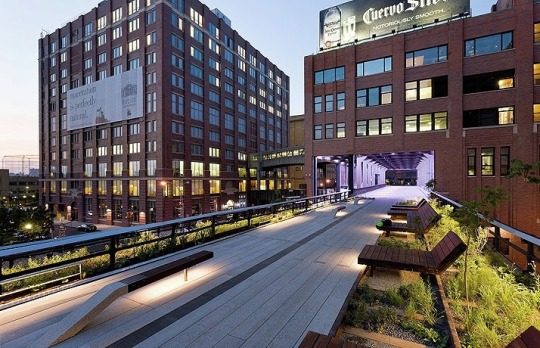
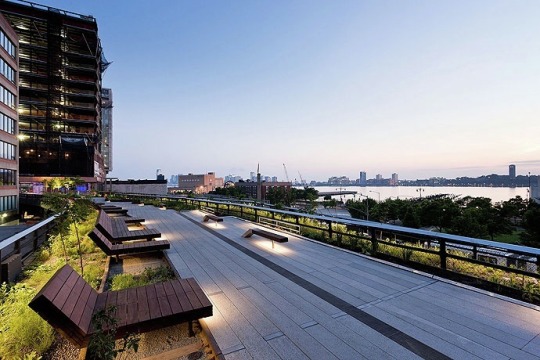
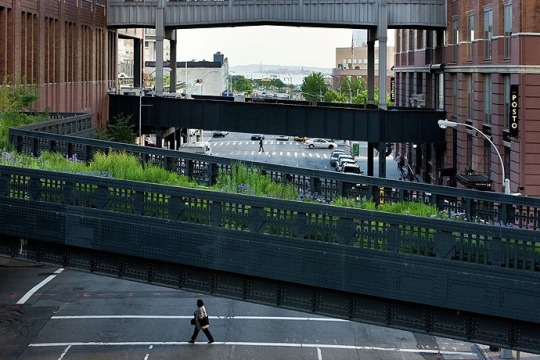
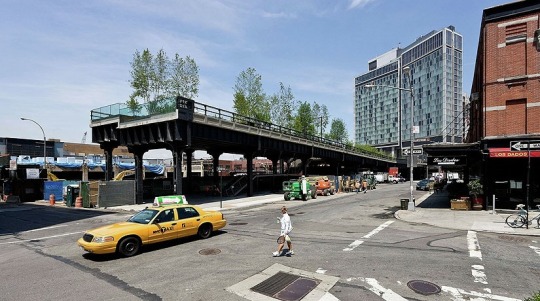
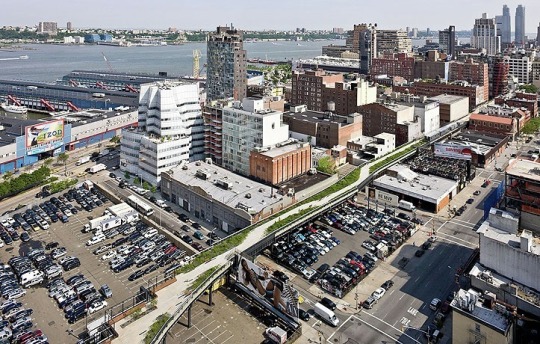
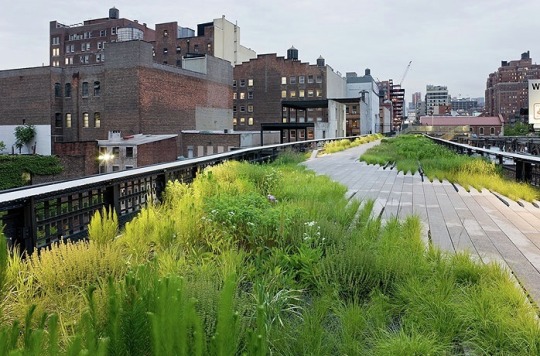
The High Line is both a nonprofit organization and a public park on the West Side of Manhattan. Through our work with communities on and off the High Line, we’re devoted to reimagining the role public spaces have in creating connected, healthy neighborhoods and cities.
Built on a historic, elevated rail line, the High Line was always intended to be more than a park. You can walk through gardens, view art, experience a performance, savor delicious food, or connect with friends and neighbors-all while enjoying a unique perspective of New York City.
Nearly 100% of our annual budget comes through donations from people like you, who help us operate, maintain, and program the park.
The High Line is owned by the City of New York and we operate under a license agreement with NYC Parks.
History
Believe it or not, the High Line was once destined for demolition. Luckily, the community rallied together to repurpose it instead, creating the park you see today, for everyone to enjoy. It has since become a global inspiration for cities to transform unused industrial zones into dynamic public spaces.
https://www.thehighline.org/history/
1999
In the decades of disuse, many people were calling the High Line an ugly eyesore (Mayor Giuliani signed a demolition order, one of his last acts in office). But few of these critics saw what had secretly taken over the structure: a thriving garden of wild plants. Inspired by the beauty of this hidden landscape, Joshua David and Robert Hammond founded Friends of the High Line, a non-profit conservancy, to advocate for its preservation and reuse as a public space. Friends of the High Line remains the sole group responsible for maintenance and operation of the High Line (and is funded by supporters just like you).
Trampoline House - Documenta 15 underpass.
youtube
Trampoline House’s contribution to documenta fifteen, Castle in Kassel, hints at the physical and metaphorical representation of territorial power and the exercise of ownership. Physically, the “castle” is a territory marked by a circle of chalk on the floor. Inside the circle, there is a public program of performances, debates, and screening of artworks that puts into perspective the Danish asylum system and attitudes towards refugees and migrants. The participants of a theater workshop with asylum-seekers, rejected asylum-seekers, and refugee youth write and perform sketches about life in the Danish asylum system. A creative writing workshop facilitated by Jean Claude Mangomba examines the criminalization of asylum seekers and a retracing of the rights lost in an unjust and discriminatory system.
Castle in Kassel is not merely site-specific. With its walls easily erased, the castle presents its own antidote to a discriminatory system, tied together through live streaming and documentation to convey Trampoline House’s vital role.
Located in the underpass at Platz der Deutschen Einheit, The Walls Have Ears is a hidden sound installation by Sudanese Artist Khalid Albaih from Trampoline House that consists of hidden speakers placed in random locations along the tunnel telling stories of asylum seekers in Denmark.
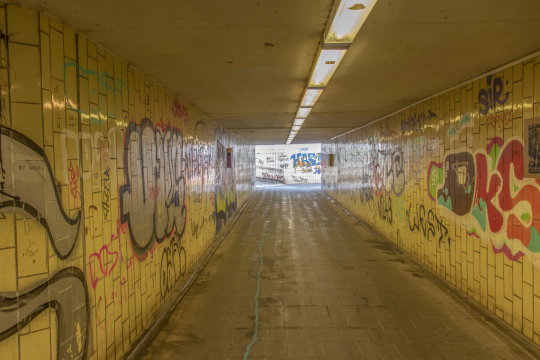
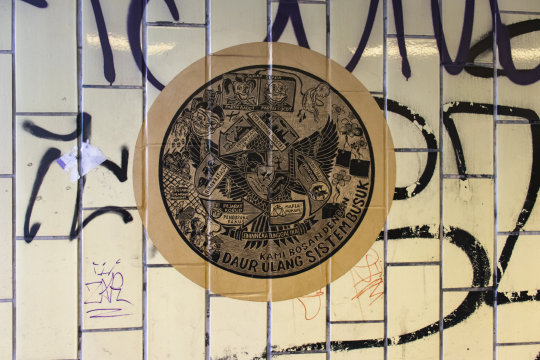
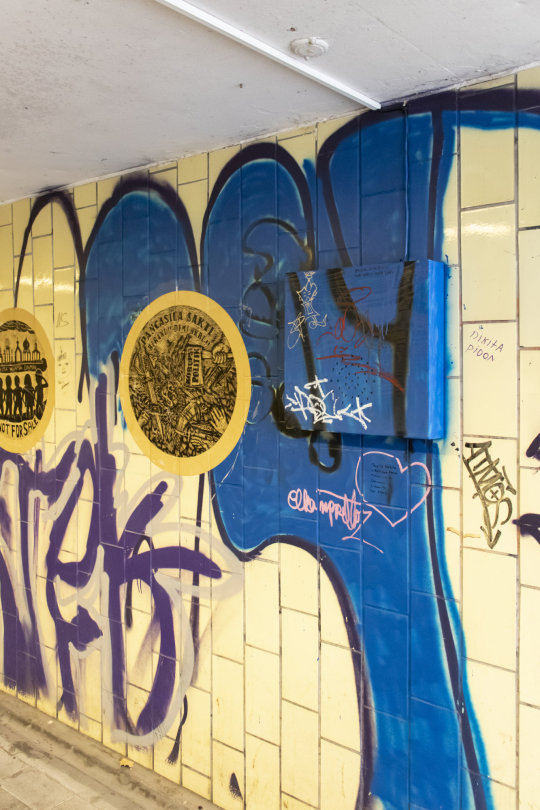
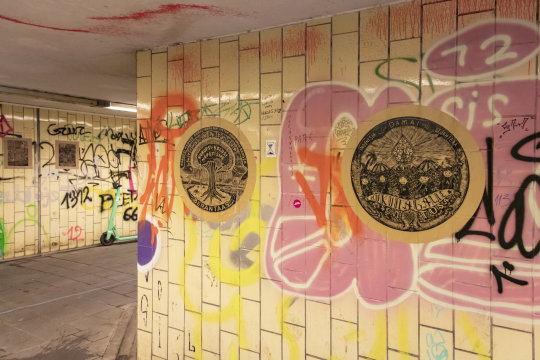
Trampoline House was formed in 2010 by a group of artists, curators, refugee rights advocates, and asylum seekers as an antidote to Denmark’s asylum, refugee, and immigration policies.
Balenciaga chips wallet:
$1,800 chip bag wallet.
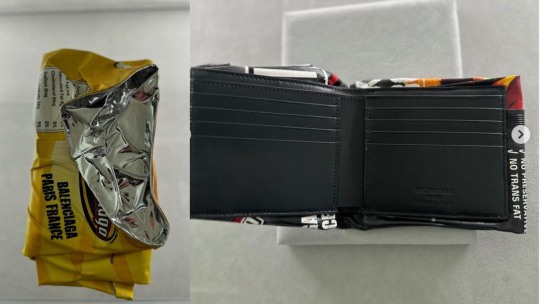

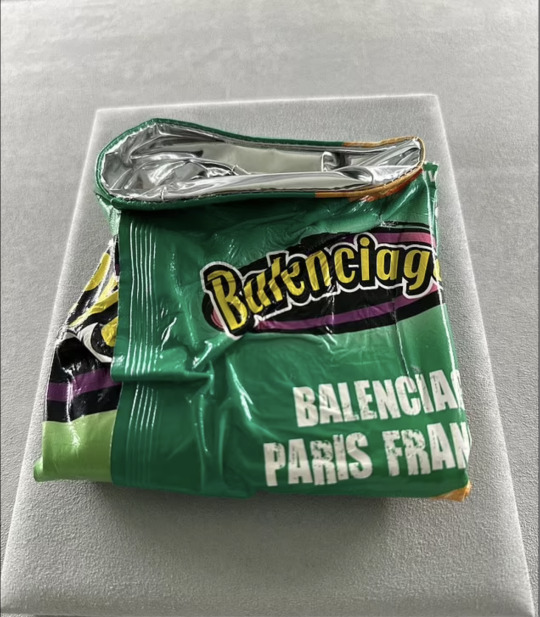
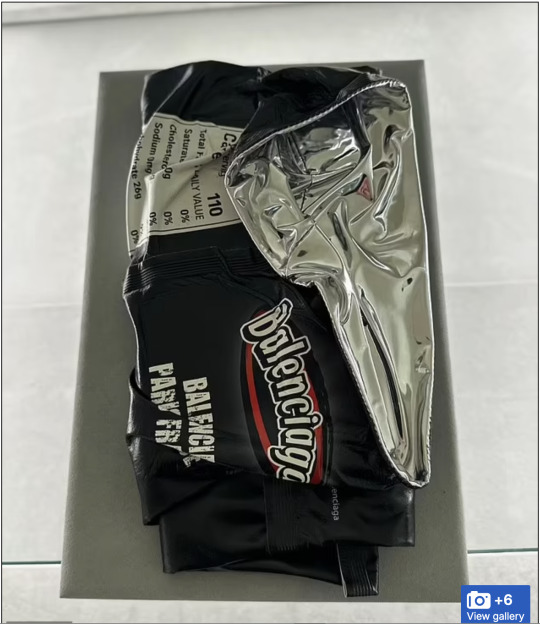
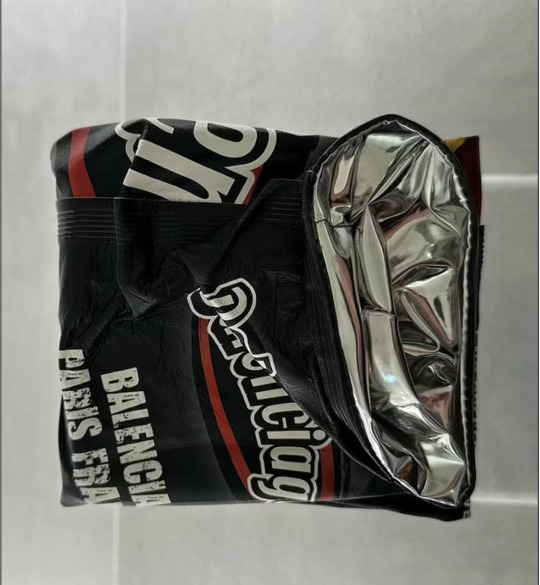

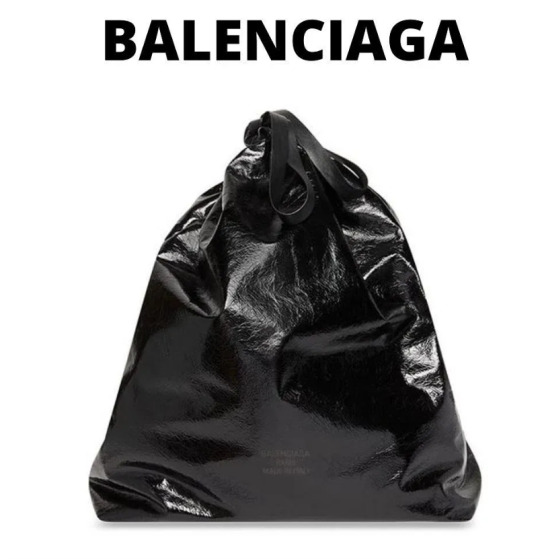
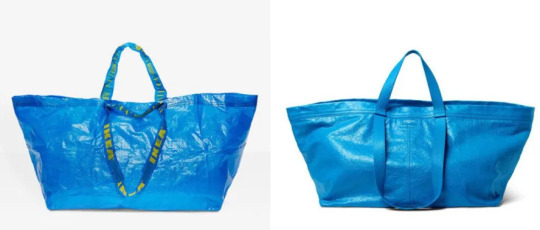
Balenciaga: Runway shows
youtube
youtube
Hito Steryl MISSION ACCOMPLISHED: BELANCIEGE

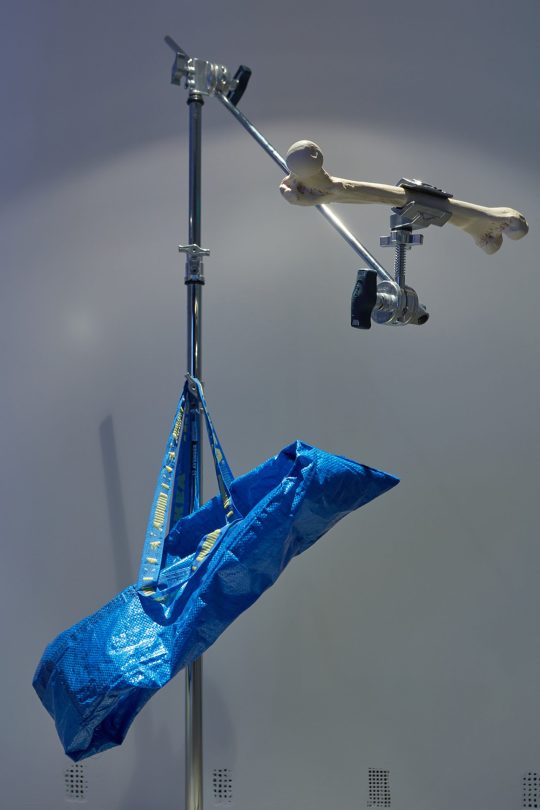
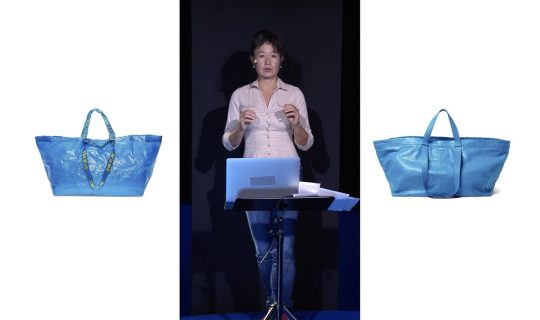
The video installation MISSION ACCOMPLISHED: BELANCIEGE presented at Trafó Gallery reveals similar ’invasions’ of history and emphasizes their cyclical nature by turning towards the processes of economic and political realignment that followed the fall of the Berlin Wall, and by featuring examples that target our hyper-contemporary world armed with trend analysis, data mining, political advertising and audience targeting. The video installation is co-created by Giorgi Gago Gagoshidze, Hito Steyerl and Miloš Trakilović and is based on their lecture in 2019 at n.b.k. - Neuer Berliner Kunstverein. Almost 30 years to the day after the fall of the Berlin Wall, the lecture reflects on post-1989 transformations and political rearrangements in the former Soviet territories, sheds light on the interconnections between culture and populism, and examines in a broader context the mechanisms of oligarchic-capitalist culture that emerged during the 'privatisation' of the former Eastern bloc. The luxury fashion brand Balenciaga acts as a starting point for the artists’ reflections on politics, culture and populism, and reveals connections between trends, social media and political processes, such as the success of alt-right movements, the manipulation of the US presidential elections that enabled Donald Trump's victory, or the rise of populist and neoliberal politics in the countries of the former Eastern bloc.
Posters "Picó" Cartagena, Colombia.
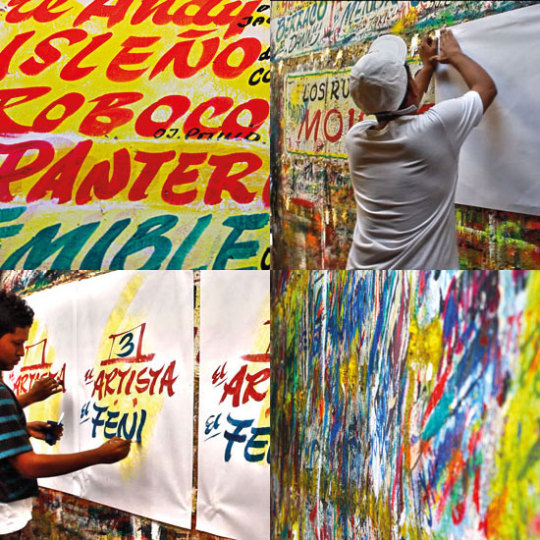
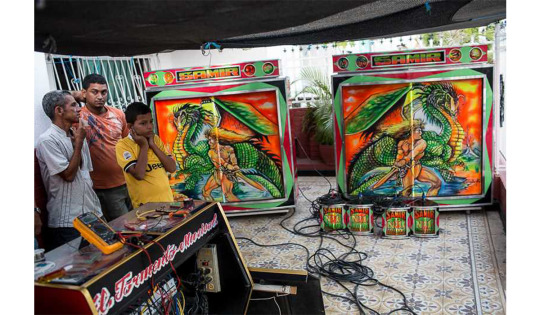
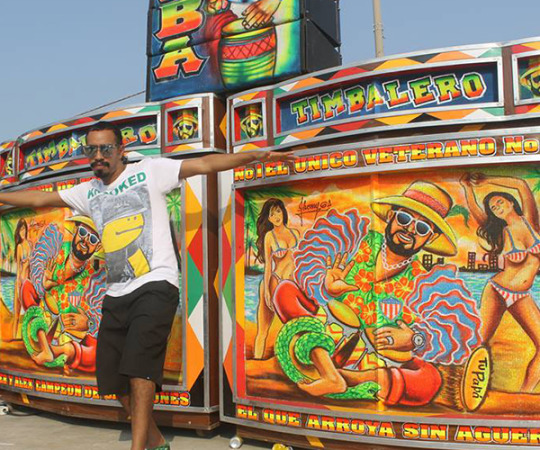
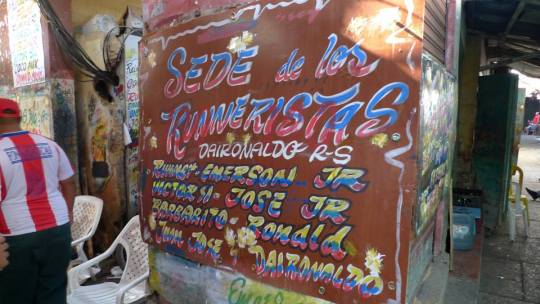
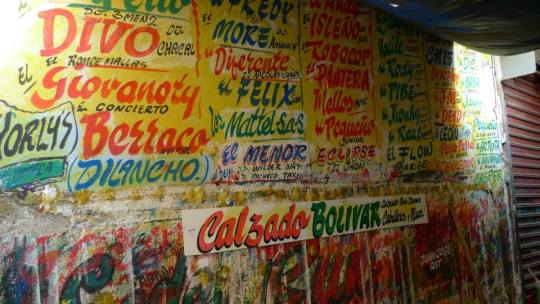
En medio del calor tropical, y el mar caribe existe un fenómeno musical, en el cual gira toda una cultura: Los pick ups. Estos no se promocionan con afiches impresos ni con litografías, sino con afiches artesanales; diseños hechos a mano por los artistas de Bazurto. Se han convertido en un símbolo de patrimonio cultural del Caribe.
El mercado de Bazurto en Cartagena, es el templo en donde reside el alma de la champeta. Allí, en pleno corazón, encontramos al maestro de los Carteles Picoteros: José Corredor Rodelo alias “El Runner”.
Pocas veces se tiene la oportunidad de ver personificada la tan conocida manera de trabajar de las hormigas. Día tras día, el Mercado de Bazurto en Cartagena alberga a un artista de la gráfica popular y sus discípulos, vivo ejemplo de trabajo arduo, disciplinado, organizado y en equipo.
El “Runner”, desde las épocas de colegio cuando, su maestro de idiomas decidió apodarlo de ese modo, hoy con 50 años de edad y sin ninguna agencia publicitaria tiene a su cargo la mayor Empresa (informal) de carteles populares de la Heróica.
0 notes
Text
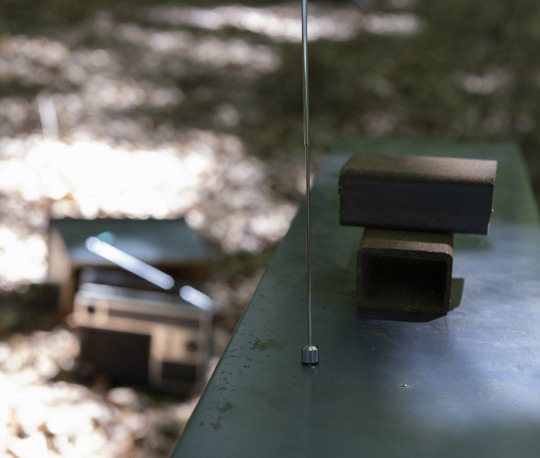
NEAR FIELD Gambletron 2022
Via Detour: Uber Umweg, Robin's Nest, Witzenhausen, germany .
An exploration of radio transmission/ receiver kinetic feedback on found metal.
This project lived in a german forest for three months acting as both an FM radio station and a feedback resonant machine. Antennae rumbling and activated by cyclic wiring in conjunction with transmitted sound being fed into the sculpture via surface transducers.
Curators: Maria Hinze, Peter Becker
The media festival included 20 ish artists internationally and was programmed adjacent to Documenta 15 and had busses running from Kassel.
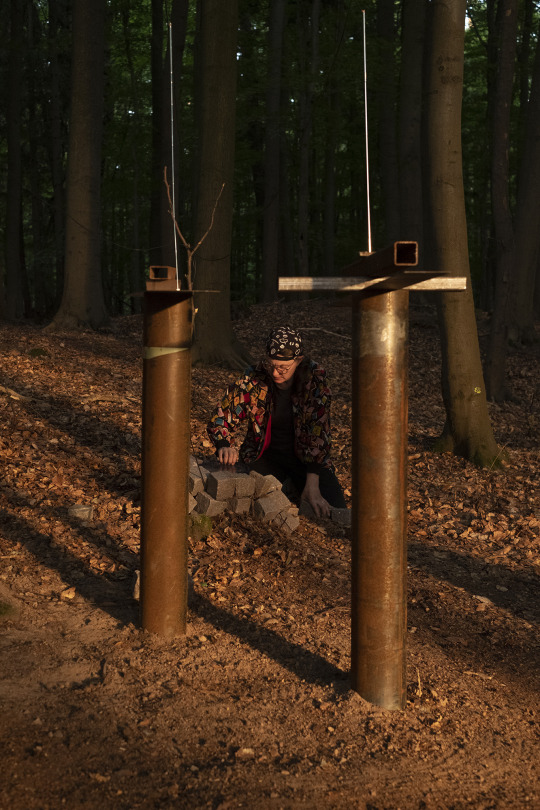
0 notes
Text
La Berlinale, totalmente ideologizada: premios al cine oficialista rendido al discurso «woke»
La Berlinale, el festival internacional de cine de Berlín, celebró su 74ª edición del 15 al 25 de febrero, otorgando su mayor galardón, el Oso de Oro, a un documental dirigido por la franco-senegalesa Mati Diop. La película, de poco más de una hora de duración, documenta la “repatriación” de 26 esculturas que, en 1892, llevaron tropas francesas del reino denominado entonces Dahomey (así se llama…
View On WordPress
0 notes
Text
Ort: KAS-Akademie, Tiergartenstraße 35, Berlin-Tiergarten
Datum: 1. Juli 2024 Beginn: 14:00 Uhr
Öffentliche juristische Fachtagung
Documenta 15, die Berlinale, diverse Ausstellungen und Performances mit antisemitischen Inhalten werfen immer wieder die Frage auf: Was muss der freiheitliche Staat aufgrund der Kunst-, Meinungs- und Wissenschaftsfreiheit hinnehmen? Wo gibt es verfassungsrechtliche Spielräume für regulierendes Eingreifen? Muss der Staat auch antisemitische Inhalte finanzieren? Oder darf der Staat im Zuwendungsrecht die Mittelvergabe an Bedingungen binden, die gewährleisten, dass der Schutz der Menschenwürde, der freiheitlichen demokratischen Grundordnung und der Gedanke der Völkerverständigung zumindest nicht gefährdet werden?
Antisemitismus verstößt gegen den Schutz der Menschenwürde und die freiheitlich-demokratische Grundordnung. Dies hat das Bundesverfassungsgericht zuletzt im II. NPD-Urteil festgehalten. Seit dem 7. Oktober 2023 nehmen die Anzahl und die Intensität antisemitischer Vorfälle in Deutschland massiv zu. Aber schon zuvor gab es immer wieder Diskussionen um Antisemitismus, Boykotte und Boykotteure von israelischen Künstler:innen und Wissenschaftler:innen in öffentlich finanzierten Einrichtungen.
Die Frage, ob der freiheitliche demokratische Staat, der dem Schutz der Menschenwürde verpflichtet ist, bei seiner Mittelvergabe an Dritte eine Selbstparadoxierung hinnehmen müsse, hat die Politik zuletzt bei der Parteienfinanzierung und dem Stiftungsfinanzierungsgesetz diskutiert.
Eine Auseinandersetzung über die rechtlichen Mittel gegen Antisemitismus und geeignete Maßnahmen zur Antisemitismusbekämpfung sind wichtiger denn je. In mehreren Veranstaltungen sollen die rechtlichen Grundlagen im Kampf gegen Antisemitismus und die Möglichkeiten zu ihren Verbesserungen mit Praktiker:innen und Wissenschaftler:innen aus Antisemitismusforschung und -prävention, Rechtswissenschaft, Justiz und Politik analysiert und diskutiert werden.
Die juristische Fachtagung “Kein Geld für Antisemitismus?!” widmet sich dem Zuwendungs- und Gemeinnützigkeitsrecht und diskutiert, welche Möglichkeiten und Grenzen in Bezug auf die Antisemitismusbekämpfung in diesen Rechtsbereichen existieren.
Bitte zur Veranstaltung hier anmelden
PROGRAMM
14:00 – 14:15
Grußworte
Dr. Felix Klein (Beauftragter der Bundesregierung für jüdisches Leben in Deutschland und den Kampf gegen Antisemitismus)
RA Daniel Botmann (Geschäftsführer des Zentralrats der Juden in Deutschland)
Dr. Andreas Jacobs (Konrad-Adenauer-Stiftung)
Volker Beck (Geschäftsführer Tikvah Institut)
14:15 – 14:35
Input 1: Bedeutung, Möglichkeiten und Grenzen des Zuwendungsrechts
RAin Dr. Hannah Rubin (Eichler Kern Klein Rechtsanwälte, Berlin)
14:35 – 14:55
Input 2: Staatliche Kunstförderung und Antisemitismus: Bedeutung, Möglichkeiten und Grenzen von Förderrichtlinien
Dr. Nina Keller-Kemmerer (Universität Gießen)
14:55 – 15:15
Input 3: Strategien gegen Antisemitismus in staatlich verantworteten Räumen. Grundrechtliche Bindungen und rechtliche Handlungsmöglichkeiten
Prof. Dr. Hans Michael Heinig (Georg-August-Universität Göttingen)
15:15 – 15:35
Input 4:
Prof. Dr. Christoph Möllers (Humboldt-Universität zu Berlin)
15:35– 15:55
Input 5: Antisemitismus als Rechtfertigungsgrund für Ungleichbehandlung: Was sagt das Verfassungsrecht?
RA Dr. Patrick Heinemann (Bender Harrer Krevet Rechtsanwälte, Freiburg)
15:55 – 16:15
Kaffeepause
16:15 – 16:35
Input 6: Grundrechtliche Grenzen bei vergaberechtlichen Entscheidungen?
Prof. Dr. Kyrill-Alexander Schwarz (Universität Würzburg)
16:35 – 16:55
Input 7: Erfahrungen aus Schleswig-Holstein
N.N. (Ministerium für Bildung, Wissenschaft und Kultur des Landes Schleswig-Holstein)
16:55– 17:15
Input 8: Das Gemeinnützigkeitsrecht als Trennlinie zu Demokratie-Feinden – inklusive Stolpersteinen
Stefan Diefenbach-Trommer (Allianz “Rechtssicherheit für politische Willensbildung”)
17:15 – 18:00
Streitgespräch
moderiert von Frederik Schindler
Prof. Dr. Christoph Möllers (Humboldt-Universität zu Berlin) [angefragt]
RA Dr. Patrick Heinemann (Bender Harrer Krevet Rechtsanwälte, Freiburg)
18:15 – 18:30
Begrüßung
Prof. Dr. Verena Blechinger-Talcott (stellv. Vorsitzende Konrad-Adenauer-Stiftung)
18:15 – 20:00
Öffentliche Podiumsdiskussion
moderiert von N.N.
Gitta Connemann (MdB, CDU)
Dr. Thorsten Lieb (MdB, FDP)
Dr. Sergey Lagodinsky (MdEP, Grüne)
Martin Matz (MdA, SPD)
im Anschluss
Abendimbiss
Diese Veranstaltung ist Teil des Projekts „Jeda“.
Stand des Programmes: 24. Juni 2024
2 notes
·
View notes